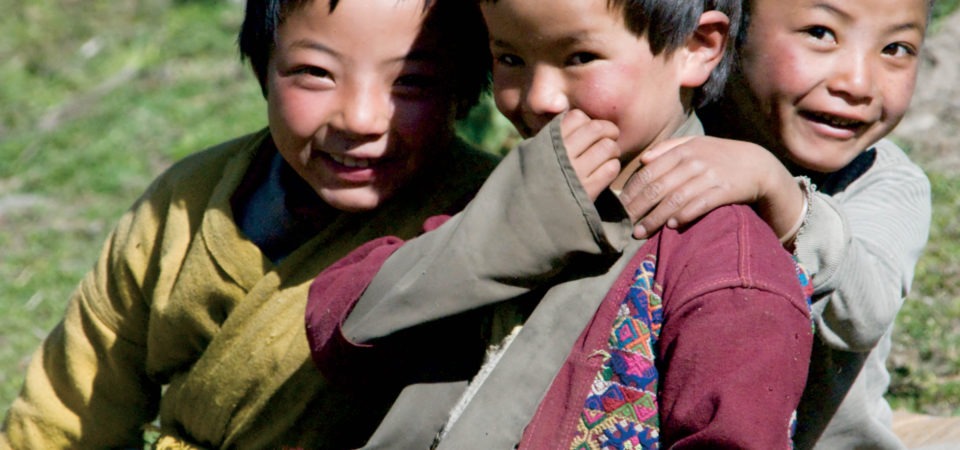Item Link: Access the Resource
Author(s): Tshewang, Ugyen , Michael Charles Tobias, Morrison, Jane Gray
Bhutanese ecology as never before seen from the inside by one of the country’s leading scientists, with both top government and top research experience backing his unique contribution to the book. Find the book here.
A book review by Geoffrey Holland
This book is a remarkable achievement for what it reflects about how to function as a nation of humans who value compassion and living in harmony with nature.
Bhutan is a small kingdom high in the Himalayas. Ruled by a compassionate, forward-thinking monarch, this nation has sacked traditional industrial GDP economics in favor of life indicators that add up to Gross National Happiness (GNH).
Troubled in recent years by the encroachment of climate change and other existential threats, caused almost entirely by the massive overreach of the industrialized world, Bhutan is having to cope with some burgeoning direct threats to the health and safety of its people.
So, how does Bhutan respond; by choosing a path forward built on compassion and non-violence; by choosing to optimize the Bhutanese culture’s relationship with nature; by choosing to be an inspiring example to the entire world of how an ancient Buddhist culture is putting people and nature first.
Out of that cultural commitment came something called, ‘An Assessment of Conservation Priorities’, a thorough, science-based review of the human footprint on Bhutan’s natural heritage. Led by former Bhutanese Environment Minister Dr. Ugyen Tshewang, a team of government and university researchers conducted a thorough multi-disciplinary review from 2018 into 2021 of every region in the Kingdom. The effort was funded in large part by the Los Angeles-based Dancing Star Foundation, led by Michael Charles Tobias and his partner Jane Gray Morrison.
Bhutan’s commitment to compassion and non-violence clearly resonates powerfully with Tobias and Morrison. They have collated the science collected by the team of researchers, and shaped it into a beautifully realized volume that gives scientific credence to the Bhutanese cultural mantra, which is to live as a part of nature rather than function, as too many humans around the world still do, as if above and superior to nature.
Tobias has been conducting serious research in Bhutan since 1974 and this latest book follows two others written with some or all content focused on Bhutan. They are, Sanctuary: Global Oases of Innocence (Tobias and Morrison, 2008, Council Oak Publishers) and Bionomics in the Dragon Kingdom: Ecology, Economics and Ethics in Bhutan (Tshewang, Tobias and Morrison, 2018, Springer Publishers).
Bhutan is not the only nation given this kind of attention by Tobias and Morrison. They are also the authors of The New Zealand Factor (a six-hundred page illustrated work that may be freely downloaded (https://dancingstarfoundation.app.box.com/s/st72okcdfn).
Bhutan has been designated by Conservation biologists as one of 36 global hotspots for its rich plant and animal diversity. As is all of our Earth, Bhutan is at great risk from anthropocentric climate change. The good news is 50% of Bhutan’s landscape is under protected status, and 70% remains forested, in keeping with this Buddhist nation’s Constitution, which requires a minimum of 60% forest cover.
Bhutan is uniquely suited to inspire the rest of the world on proper planetary stewardship. This book’s authors tell us that, ‘Historically, the association between people and other species in Bhutan constitutes a legacy of ancient reverence.’
It’s seems to this writer that respect, and reverence are exactly the right prescription for correcting our dysfunctional relationship with the natural world we all depend on.
What is truly unique about the recommendations that emerged from the scientifically rigorous ‘Assessment’ reflected in this book is Bhutan’s commitment to the non-violent stewardship of its natural heritage. From human-wildlife conflict resolution to dealing with threats driven by climate change, Bhutan’s government policy prioritizes action that serves the welfare of its people and its biological diversity.
Bhutan: Conservation and Environmental Protection in the Himalayas will have its greatest value as a policy tool for that nation’s leaders, but its relevance extends well beyond as an example to other nations of how government can reconcile human interests with the sustainability needs of a healthy, diverse biosphere.
_________________
Geoffrey Holland is the author of The Hydrogen Age, and serves currently as MAHB Dialogue Coordinator for the Millennium Alliance for Humanity and the Biosphere.
The views and opinions expressed through the MAHB Website are those of the contributing authors and do not necessarily reflect an official position of the MAHB. The MAHB aims to share a range of perspectives and welcomes the discussions that they prompt.
